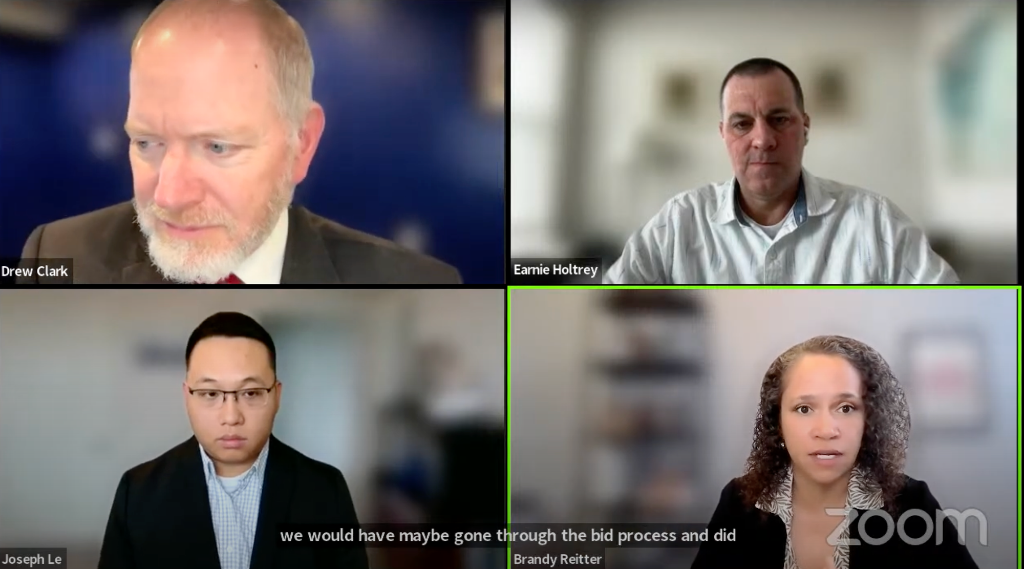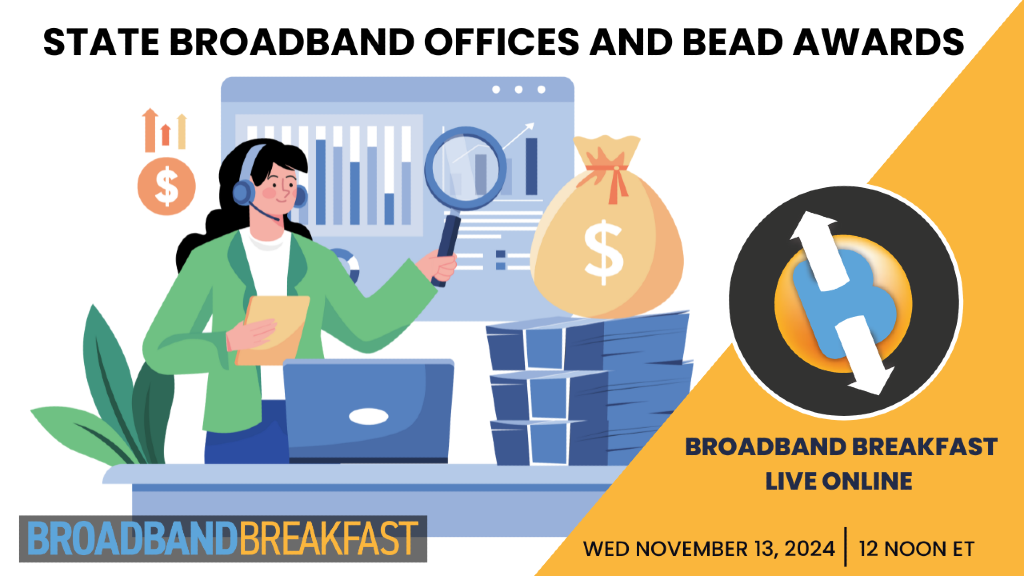States Navigate BEAD Program Implementation Amid Political Transition
Officials emphasized that the BEAD program is likely to continue despite the upcoming administration change.
Broadband Breakfast

WASHINGTON, Nov. 20, 2024 — State broadband officials are pressing ahead with implementing the $42.5 billion Broadband Equity, Access and Deployment program despite uncertainty around the upcoming presidential transition, according to officials speaking at a Broadband Breakfast Live Online event on Nov. 13.
Colorado has received $1.8 billion in funding requests for its $826.5 million BEAD allocation, highlighting the significant funding gaps some Western states face in achieving universal broadband coverage.
"We have a pretty significant funding gap," said Brandy Reitter, executive director of the Colorado Broadband Office. "This has become just as much of a budget exercise as it is a bridging the digital divide exercise."
 Broadband BreakfastJoseph Le
Broadband BreakfastJoseph Le
Colorado received applications covering about 111,000 broadband serviceable locations out of its target of 160,000 locations. While the state received bids in all 64 counties, Reitter said only about 40% of priority broadband projects will be fiber-based due to cost constraints.
On the other hand, Kansas expects to deliver fiber connectivity to approximately 75% of its 52,000 unserved locations using its $451.7 million allocation, with alternative technologies covering the remainder.
However, Kansas Interim Director of Broadband Development Joseph Le advised applicants to be prepared for extensive negotiations as states work to maximize their limited funding.
"You may have a great fiber application in an area that extremely exceeds the high cost thresholds for those locations," Le said. "Negotiations and trying to get the next best qualifying technology to be under that threshold while still minimizing your BEAD funding request is how you can stretch those dollars the furthest.”
Both officials emphasized that the BEAD program is likely to continue despite the upcoming administration change, given its basis in law and bipartisan support for broadband expansion.
"Broadband does have bipartisan support," Reitter said. "I don't see BEAD going away. I do see maybe there could be some changes in the new administration."
Earnie Holtrey, director of state and local government partnerships at Ready.net and former Indiana broadband official, suggested any changes would likely be limited to interpretations of existing requirements rather than major program alterations.
"Those cannot quickly be changed by razor-thin margins in the House and the Senate," Holtrey said, referring to the program's core requirements. "Where I would think maybe we see some changes eventually would be the NTIA’s directives or how affordability is interpreted.”
Colorado aims to submit its final proposal to NTIA by late February or early March, with grant agreements potentially being extended to subrecipients by late spring. Kansas's application window remains open until December 5.
Officials acknowledged ongoing challenges with mapping broadband serviceable locations accurately, describing it as a "dynamic list that continues to evolve" requiring constant updates and verification.
The event also highlighted the growing focus on broadband adoption and digital equity as states implement their deployment plans, though Le noted Kansas’s adoption initiatives will be handled through separate digital equity funding streams rather than BEAD dollars.
"We're not really addressing adoption for BEAD here since the BEAD primary focus is availability," Le said, noting Kansas will rely on its approximately $8.2 million in Digital Equity Act funding to drive adoption efforts.

November 13, 2024 - State Broadband Offices and BEAD Awards
With several states now launching their application portals for the Broadband Equity Access and Deployment Program, attention shifts to the next steps in fund deployment and program execution. What should subgrantees keep in mind moving forward? How will states navigate the interplay between different broadband technologies while ensuring program objectives are met? And as deployment moves forward, what role will local oversight play in shaping implementation? Join us for an in-depth examination of these pivotal questions as states work to translate their BEAD allocations into sustainable broadband infrastructure that serves all communities.
Panelists
- Joseph Le, Interim Director of Broadband Development, Kansas Department of Commerce
- Earnie Holtrey, Director of State & Local Government Partnerships, Ready.net
- Brandy Reitter, Executive Director, Colorado Broadband Office
- Drew Clark (moderator), CEO and Publisher, Broadband Breakfast









Member discussion